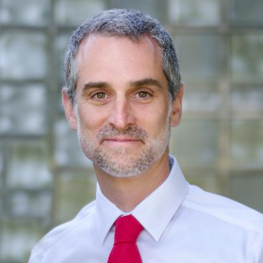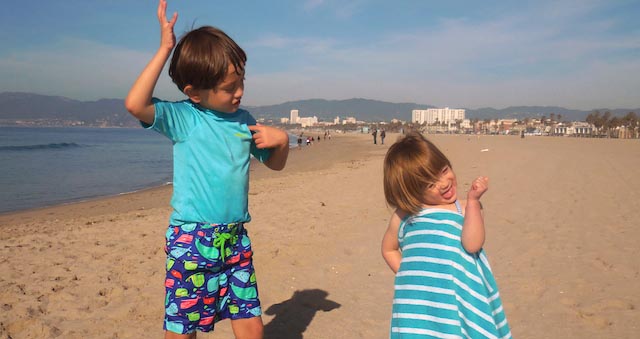“Hey Buddy!”
Whenever I hear that term, so common coming from the lips of dads in my generation, I invariably pause to reflect on the Fifth Commandment which instructs children to honor their parents (“kibbud av va-em”). Will a child whose father calls him (or, almost as frequently, her) “Buddy” come to regard that parent with the undercurrent of awe that Judaism deems appropriate?
For some reason, I have been particularly sensitive to this use of language this spring.
Maybe this awareness has to do with passing the two decade mark since my own father’s death. As one of our town’s few ophthalmologists, he worked long days and often on weekends and I still recall how much I treasured the times when he was at home or when we could go on a family vacation together or when he helped me prepare my bar mitzvah ceremony. After more than 20 years – nearly half of my life – I work hard to hang on to some of what he taught me about responsibility, persistence, supporting a family, adhering to an ancient religious tradition, taking care of community needs. And, while I recognize how many details I have forgotten, I know for certain that he never referred to me in this way.
Maybe I’m noticing “Buddy” because of Father’s Day this month and my anxiety about whether I’m fulfilling my own paternal responsibilities for my 7-year old son, Ari, and my 4-year old daughter, Talia. A frequently cited passage from the Talmud concerning the duties incumbent on fathers is found in Kiddushin 29a, which includes teaching them Torah. Am I instructing Ari and Talia to be kind, and to respect and be self-confident about who they are? Am I teaching them to swim?
Perhaps I am noticing the use of “Buddy” because my wife, Helen Kim, and I are in the final stages of editing a book about our multi-year research project that looks at households that blend Jewish and Asian traditions and backgrounds, which will be published next spring by The University of Nebraska Press.
Our research, which finds that these households are raising young mixed-race people with strong Jewish identities, pays particular attention to fathers and how they can be influential in helping their children – sons and daughters – gain an understanding about Judaism. While our findings reinforce that in these households the mothers are typically the lead parents when it comes to instilling a sense of Jewishness in their children, we also find that the kids of these kinds of kids want both of their parents to provide them with teaching and connections to their heritages. Fathers make a difference, they told us, and should be involved and equal partners in teaching Torah, especially in these households with so many strands of identity within them. (The kids also want their fathers to also help them understand being mixed-race even if that was not their father’s own racial identity.)
Interestingly, for this book we spoke with 34 couples as well as 39 adult children – totaling hundreds of hours of interviews – and not once did anyone ever reference the term “Buddy” when discussing parent-child interactions in these families.
Thus, as I think about what I can do to be a good father, I’ll begin by refraining from calling Ari and Talia “Buddy.” It may not seem like a big deal but it does serve to remind me that Judaism creates unique roles for parents, including for fathers, and if I’m going to carry out my responsibility to teach them about our tradition I can start by using what I hear around me every day.







